Supreme Court rules for church-affiliated hospital in pension case
- By lemaster
- •
- 30 Jun, 2017
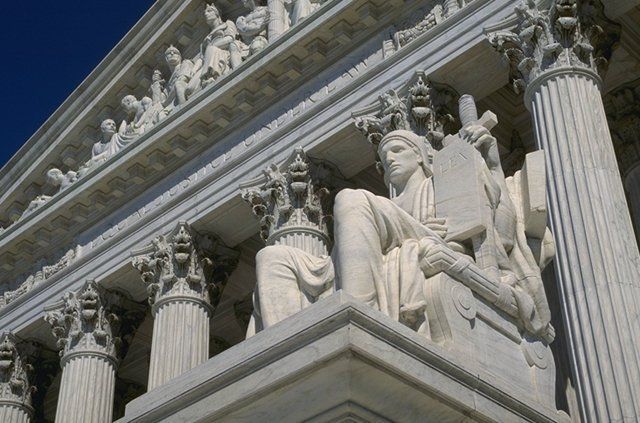
[JURIST] The US Supreme Court
[official website] ruled
[opinion, PDF] Monday in Advocate Health Care Network v. Stapleton
[SCOTUSblog materials] that a church-affiliated hospital's pension fund
is exempt from the federal pension law. The court held that under the Employee Retirement Income Security Act
(ERISA) [materials], a defined-benefit pension plan maintained by a
church-affiliated organization qualifies as a "church plan," even though
it was established by the healthcare facility, not the church. Justice
Elena Kagan wrote for the court:
ERISA provides (1) that a "church plan" means a "plan established and maintained ... by a church" and (2) that a "plan established and maintained ... by a church is to "include[] a plan maintained by" a principal-purpose organization. Under the best reading of the statute, a plan maintained by a principal-purpose organization therefore qualifies as a "church plan," regardless of who established it.
Justice Sonia Sotomayor filed a concurring opinion.
The case was consolidated with Saint Peter's Healthcare System v. Kaplan and Dignity Health v. Rollins [dockets]. The court heard arguments [JURIST report] in March after granting certiorari in December.

[JURIST] A federal judge on Thursday denied bail to Reality Leigh
Winner, the Georgia woman who is accused of leaking classified
information to the media. Prosecutors successfully argued
[AP report] that she remains a flight risk and a threat to the public
after presenting a notebook in which she wrote, "I want to burn the
White House Down ... find somewhere in Kurdistan to live. Ha-ha!"
Winner, who operated under Pluribus International Corporation in Georgia
at the time she is alleged to have removed material from a US
government facility, is the first person charged with leaking classified
information during the Trump administration. She is charged
[JURIST report] with gathering, transmitting or losing defense
material. Winner is suspected of transmitting a report to The Intercept,
an online news organization. The report at issue contained information alleging
[AP report] a Russian cyber attack took place on a voting software
supplier before the last US presidential election. If convicted, Winner
could face up to 10 years in prison.
Possible hackings and data breaches have caused serious concern in recent years. In March the DOJ announced the indictments [JURIST report] of four Russian nationals in connection with hacking e-mail accounts. In January a group of ten US Senators introduced legislation [JURIST report] aimed at implementing mandatory sanctions against Russia for its involvement in cyber hacking during the 2016 presidential election. In October 2015, at the request of US government officials, Chinese authorities arrested [JURIST report] individual hackers that allegedly misappropriated commercial secrets from US firms with the intention to sell proprietary information to state-owned entities within the the People's Republic of China.
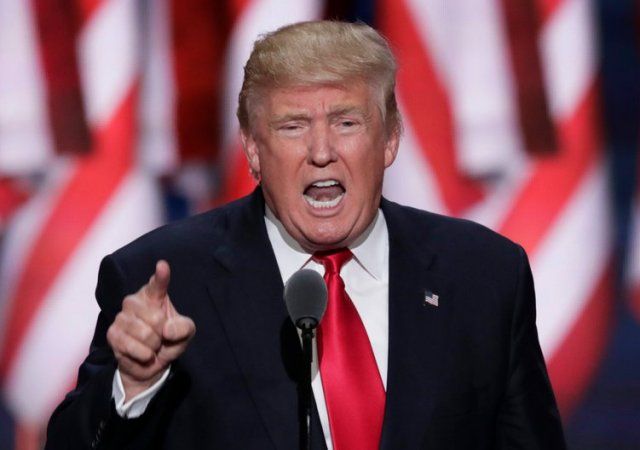
[JURIST] The Republican-led US House of Representatives
[official website] voted on Thursday to lift many of the constraints
that were put into place following the 2008 financial crisis. This vote
is likely the beginning of a debate over deregulation of the powerful
banking industry. This bill
[text], supported by the Trump administration, would amend the
Dodd-Frank Wall Street Reform and Consumer Protection Act to spur
economic growth by easing banking regulations. The bill is likely to
face resistance in the Senate. Democrats and other progressive groups,
who believe the banking industry requires tougher regulations,
disapprove of the bill. These groups point out that banks reported
[ Chicago Tribune
report] record profits last year, despite the tough Dodd-Frank Act
rule. The Act is part of the broader GOP plan to reduce the size and
influence of the federal government on everyday life.
The US banking industry has come under fire [JURIST op-ed], and greater regulation, since the 2008 economic downturn. As part of greater regulation, the Obama administration developed the Consumer Financial Protection Bureau (CFPB). Donald Trump began his attack on the CFPB during his campaign when he promised less regulation for businesses. In February Trump issued [JURIST report] an executive order and a presidential memorandum [texts] with orders aimed at an incremental dismantling of the Obama administration's financial regulations. In January the president issued an executive order [JURIST report] that requires two regulations to be eliminated for every new one created.
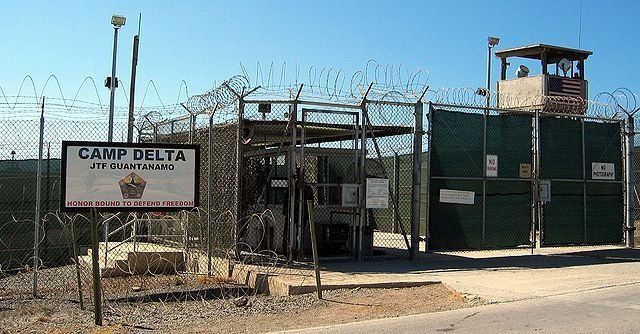
Guantanamo Bay remains [JURIST backgrounder] a controversial issue due to allegations of torture and lack of legal rights for detainees. In January a federal judge declined [JURIST report] to intervene in the release of a Guantanamo prisoner. In November then-president Barack Obama blamed [JURIST report] the failure to close Guantanamo Bay on Congressional restrictions. In August a federal appeals court threw out [JURIST report] a former Guantanamo detainee's torture claim.

[JURIST] The US Supreme Court
[official website] on Wednesday refused to block
[docket] a finding that a Texas county's bail system discriminates against the poor. Officials of Harris County petitioned the court on Tuesday
[AP report] for an emergency order to block the ruling by the US Court of Appeals for the Fifth Circuit
[official website] which called for the release of inmates who were
incarcerated for not being able to afford bail. District Judge Lee
Rosenthal of the Southern District of Texas
[official website] ruled in April that inmates who signed affidavits
swearing to their financial situations could be released from the county
jail as the bail system was in violation of equal protection rights and
due process safeguards against incarceration without proper procedure
or affording those held the opportunity to be heard. The country jail
began releasing inmates late Tuesday and will continue to do so. The
county will continue its appeal of the ruling.
The issue of finance as a factor for revocation or imprisonment is controversial. In April Human Rights Watch [advocacy website] issued a report [JURIST report] saying California's bail system pressures the poor into pleading guilty in order to be released from jail. Earlier in April the Supreme Court of Missouri ruled [JURIST report] that a parolee's ability to pay court costs should be considered. The Maryland Court of Appeals adopted a rule [JURIST report] in February ending the practice of holding criminal defendants in jail before trial when they cannot afford bail. Last June a lawsuit accused [JURIST report] a Louisiana judge of running a modern-day debtors' prison for sentencing people to jail when they could not afford fees. Last March the American Civil Liberties Union (ACLU) reached a settlement [JURIST report] with the city of Biloxi, Mississippi, in a lawsuit alleging that the detention of defendants unable to pay fines for misdemeanor charges exhibited deliberate indifference to their constitutional rights. Also last March the US Department of Justice urged [JURIST report] state court systems to stop using procedural routines and hefty fines to profit off poor defendants.

[JURIST] Former FBI
[official website] director James Comey testified on Thursday in front of the Senate Select Committee on Intelligence
[official website]. During more than two hours of testimony, Comey recounted
[prepared remarks] nine encounters with President Donald Trump. Comey
had documented each time he met with the president in private. While he
did not make any new revelations about links between the Trump
administration and Russia, he did tell the committee that he believed
Trump had directed him to drop the probe into former security advisor
Michael Flynn and, when he refused, the president lied about Comey's
subsequent dismissal and defamed the FBI. Comey said that he knew he was
fired because the Russia investigation "was in some way putting
pressure on" Trump. Comey recalled Trump telling him, "I need loyalty. I
expect loyalty," after Comey had explained to the President that he was
not on anybody's side politically and that the FBI was independent of
the executive branch.
Trump's personal lawyer, Marc Kasowitz, responded [statement, PDF] to Comey's testimony by saying that Trump had been vindicated in that "the President was not under investigation as part of any probe into Russian interference." He also rebutted Comey's "loyalty" statement saying that Trump had never said those words but "the Office of the President is entitled to expect loyalty from those who are serving in an administration." Kasowitz went on to raise alarm about Comey's admitted leaking of privileged communications. Comey had stated that he leaked the content of the memos he kept as record of his private communications with Trump to prompt the appointment of special counsel. Robert Mueller was selected [JURIST report] as special counsel shortly after.
Comey began his testimony stating that he was "confused" and "concerned" about the wavering explanations offered by the White House after his dismissal [JURIST report] in May. In an official letter of termination, Trump said that Comey is "not able to effectively lead the Bureau" and that "It is essential that we find new leadership for the FBI that restores public trust and confidence in its vital law enforcement mission." The letter was published in a press release [text, PDF] that included recommendations for Comey's ouster from Attorney General Jeff Sessions [official website] and Deputy Attorney General Rod Rosenstein. On Tuesday, Sean Spicer pointed to Rosenstein as the prime mover [WP report] of the decision to fire Comey. In a memorandum, Rosenstein criticized Comey's decision to close the investigation into Secretary Clinton's use of a private email server without prosecution, but he never specifically recommends firing Comey. White House deputy press secretary, Sarah Sanders, said on Wednesday that Trump did not ask [USNews report] for the recommendation but "The president had lost confidence in Director Comey, and frankly he'd been considering letting Director Comey go since the day he was elected." Democratic Senator of California Dianne Feinstien [official website] is skeptical of the memo [NYT report], saying, "The memo appears to have been hastily assembled to justify a preordained outcome." Republican Senator Richard Burr also expressed concerns with the timing [CNN report] of Comey's firing. Last week, federal prosecutors issued grand jury subpoenas [CNN report] for the business records of former National Security Advisor Michael Flynn who is being investigated for financial ties to Russia and Turkey. According to the CNN report, "The subpoenas represent the first sign of a significant escalation of activity in the FBI's broader investigation begun last July into possible ties between Trump campaign associates and Russia." The Senate Intelligence Committee has requested for Comey to testify as a private citizen in a closed hearing next week.
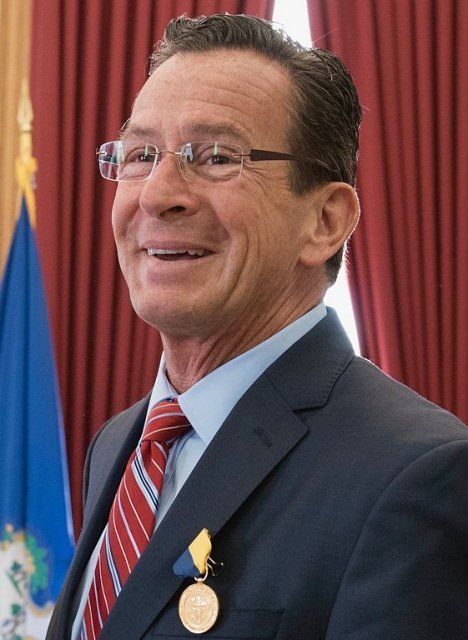
[JURIST] The Connecticut General Assembly
[official website] on Tuesday passed HB 5743
[text, PDF], an anti-hate crime bill that could be the strongest in the
country. The legislation makes any hate crime an automatic felony
rather than a misdemeanor. The bill is also more inclusive as to what
constitutes a hate crime by adding violence or threats based on
someone's gender. Additionally, the bill increases penalties for threats
against certain facilities such as religious institutions and day
cares. A provision for a minimum penalty of a $1,000 fine is included as
well as the ability to impose relevant community service on any
convicted of a hate crime. Democratic and Republican Senators voted
unanimously on the new legislation which is now headed to Governor Dannel Malloy
[official website] for consideration.
An increase in hate crimes has been reported around the globe. In November the FBI said [JURIST report] that hate crimes, especially against Muslims, were on the rise in the US. In the UK, prosecutors have been encouraged [JURIST report] to use tougher sentences against hate crimes [BBC report] in response to the nation's increasingly hostile environment since the EU referendum. Since the middle of June more than 6,000 hate crimes and incidents have been reported to the authorities.
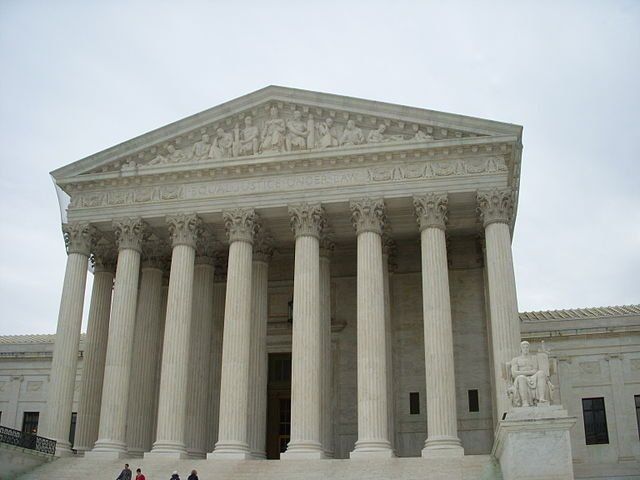
[JURIST] The US Supreme Court
[official website] lifted the stay of execution
[order, PDF] granted last week by the US Court of Appeals for the Eleventh Circuit
[official website] for Robert Melson late Tuesday. The brief order was issued by
[AL report] Justice Clarence Thomas and noted that Justices Ruth Bader
Ginsburg, Sonia Sotomayor and Stephen Breyer opposed the decision.
Melson challenged the use of midazolam in the three-drug cocktail used
in Alabama executions, arguing that it does not properly insensate
prisoners to the pain of lethal injection. Melson was convicted of the
murders of three fast-food restaurant employees during a robbery in
1994. The execution is set for 6 PM Thursday at Holman Correctional
Facility in Atmore, Alabama.
The death penalty continues to be a point of contention across the US. In May the Delaware House of Representatives passed a bill [JURIST report] that would reinstate the death penalty. In April the Texas Department of Criminal Justice sued [JURIST report] the Food and Drug Administration [official website] for banning a shipment of lethal injection drugs to prison officials. Earlier in April Amnesty International released an annual report [text, PDF] revealing the US to not be among the world's top five executioners since 2006. However, in March the Mississippi house approved a bill [JURIST report] allowing firing squad executions. In March, Florida Governor Rick Scott [official website] signed a new bill [SB 280, materials] which stated that the death penalty may only be imposed [JURIST report] by a judge upon unanimous recommendation from the jury. In January the US Supreme Court refused to consider [JURIST report] a challenge to Alabama's death penalty system. That same month, Ohio's lethal injection protocol was deemed [JURIST report] unconstitutional under the Eighth Amendment.

[JURIST] The Delaware legislature
[official website] approved a bill
[SB5 materials] on Tuesday that guarantees access to abortion. The
bill, which was previously approved by the state Senate, was approved by
a vote of 22-16 after five hours of debate and discussion. The bill
ensures that the provisions of Roe v. Wade
[LII materials] remain legal at the state level should the historical case be overturned. Under Delaware's current laws
[AP report] abortions are only permitted if the mother's health is at
risk, if there is significant indications that a child will be born with
disabilities, or if the pregnancy is a result of rape or incest. The
new legislation lifts any restrictions on abortions prior to the stage
where a fetus reaches viability. A similar bill to protect abortion rights
[Reuters report] was approved by the Illinois legislature
[official
website] in May but the state's governor, Bruce Rauner, has said he
would veto it. New York has also written legislation to protect abortion
rights, but it has stalled in the Senate.
Access to abortion has been a recent issue since President Donald Trump vowed to appoint a Supreme Court [official website] justice who will overturn Roe v. Wade. Also on Tuesday Texas Governor Greg Abbott [official website] signed a series of abortion regulations into law [JURIST report]. In May Trump's administration announced [JURIST report] plans to expand the so-called Mexico City Policy blocking international family planning assistance through the US Agency for International Development [official website] to any groups or programs that provide abortion or abortion education to women. Also in May Trump signed [JURIST report] a bill into law that scales back an Obama administration regulation that protected certain federal funds for organizations that provide abortions, including Planned Parenthood [advocacy website]. In February the US House of Representatives approved a bill [JURIST report] that would overturn the Obama administration's rule prohibiting states from denying federal funding to Planned Parenthood and passed a bill [JURIST op-ed] that makes permanent restrictions on federal funding abortion. That same month the Florida Supreme Court [official website] blocked [JURIST report] enforcement of the Mandatory Delay Law, which requires that a woman wait 24 hours after receiving counseling from a physician before she can have an abortion. Also in February the Pennsylvania Senate [official website] approved SB 3 [JURIST report], putting Pennsylvania in line to become the seventeenth state to pass a bill banning abortions past 20 weeks.

[JURIST] Texas Governor Greg Abbott
[official website] signed a series of abortion regulations into law on Tuesday. Senate Bill 8
[materials] will require the burial or cremation of fetal tissue and
bans the donation of fetal tissue. The legislation also bans so called
"partial-birth abortion," which is already banned by federal law, as
well as the dilation and evacuation procedure, a common second trimester
abortion technique. Also Tuesday Abbott announced a special legislative
session to take up additional abortion-related measures, as well as
other controversial items such as the "bathroom bill."
The US Supreme Court struck down [JURIST report] a controversial Texas abortion law in June. The court ruled [opinion, PDF] 5-3 in Whole Woman's Health v. Hellerstedt [SCOTUSblog materials] that HB2 [text], which imposed certain requirements on abortion clinics and doctors, created an undue burden on access to abortion, and was therefore unconstitutional. A Texas regulation requiring the burial of fetal remains has been blocked [JURIST report] by a federal judge.
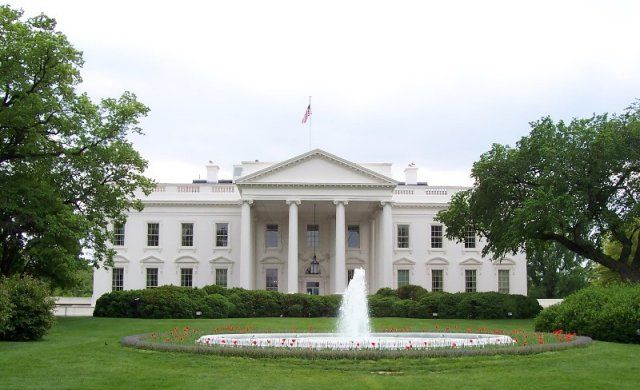
[JURIST] The US Department of Justice
(DOJ) [official website] announced
[statement] charges
[complaint, PDF] against a federal contractor Monday for leaking
classified material to a media source. Reality Leigh Winner operated
under Pluribus International Corporation in Georgia at the time she is
alleged to have removed material from a US government facility. Winner
maintained top secret clearance since February. She is charged with
gathering, transmitting or losing defense material. Winner is suspected
of transmitting a report to The Intercept, an online news organization.
The report at issue contained information alleging
[AP report] a Russian cyber attack took place on a voting software supplier before the last US presidential election.
Possible hackings and data breaches have caused serious concern in recent years. In March the DOJ announced the indictments [JURIST report] of four Russian nationals in connection with hacking e-mail accounts. In January a group of 10 US Senators introduced legislation [JURIST report] aimed at implementing mandatory sanctions against Russia for its involvement in cyber hacking during the 2016 presidential election. In October 2015, at the request of US government officials, Chinese authorities arrested [JURIST report] individual hackers that allegedly misappropriated commercial secrets from US firms with the intention to sell proprietary information to state-owned entities within the the People's Republic of China.

